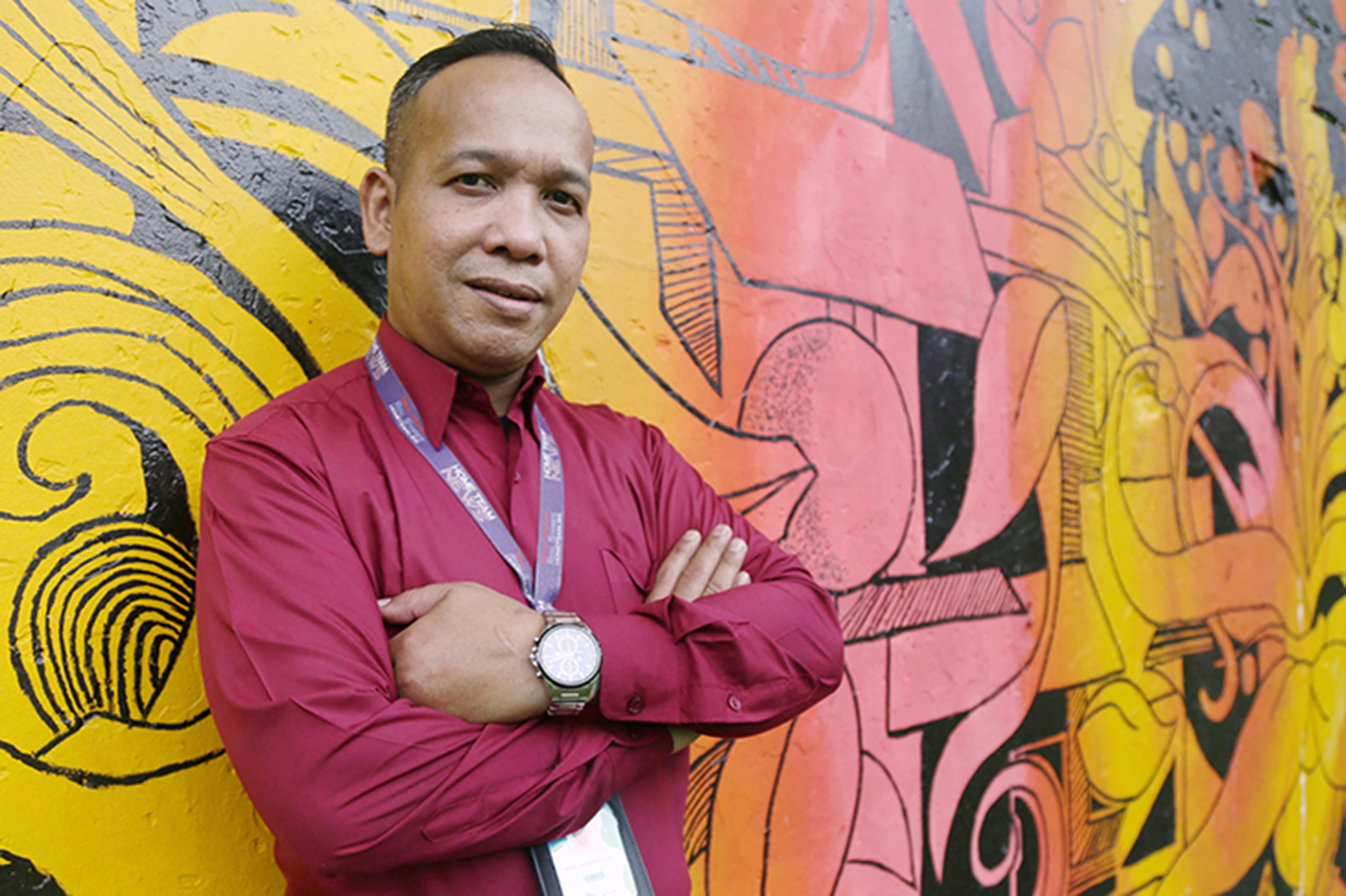Home › In The Force › Meet the scam fighter who’s unmasking the deceptive
Home › In The Force › Meet the scam fighter who’s unmasking the deceptive

SC/CPL Zhao Jiarui shares his responsibilities as a staff assistant of the Singapore Police Force’s Anti-Scam Centre.
Technology is a double-edged sword, offering both convenience and challenges. Take smart phones for example. They have evolved from simple calling and messaging devices to versatile tools for photography, browsing, gaming, and online transactions. However, while technology simplifies our lives, it has also created new avenues for scammers to exploit unsuspecting victims.
With the rise of tech-enabled crime, law enforcement personnel like SC/CPL Zhao Jiarui now fight crime both offline and online. Jiarui is currently a staff assistant at the Anti-Scam Centre (ASC), part of the Commercial Affairs Department’s Anti-Scam Command.
The importance of Jiarui’s role is underscored by the increase in online scams in Singapore. Scam cases rose by 46.8% from 31,728 in 2022 to 46,563 in 2023 — the highest number since the Singapore Police Force (SPF) began tracking scams in 2016.
In addition to rising numbers, scams are becoming increasingly sophisticated. “Since the beginning of 2024, we’ve seen a rise in job scams where scammers seek Singpass credentials from victims interested in fake jobs advertised on platforms like Telegram and WhatsApp,” says Jiarui.
“When victims contact the scammers and express an interest in the job offer, the scammers would instruct the victims to change their Singpass email address and mobile numbers to those provided by them. Victims would also be requested to provide their Singpass account passwords and photos of their NRIC. Scammers would then take over and misuse victims’ Singpass accounts to fraudulently register for bank accounts,” shares Jiarui.

While vigilante justice might seem like an appropriate payback for unscrupulous scammers, Jiarui warns against making such a move. “Many people have the misconception that they can outsmart the scammers and get their money back, but this rarely works,” he says. “In fact, they usually end up losing even more money. This is because scammers exploit cognitive biases such as sunk-cost fallacy and near-miss effect to trap victims and continue to deceive them into compliance.”
The best thing to do when one realises he or she is being scammed, Jiarui adds, is to simply cut all contact with the scammers immediately. Victims should also contact their banks to block any fraudulent transactions and lodge a police report as quickly as possible.
Another common misconception is that only those who are careless fall prey to scams. Jiarui asserts that everyone can become a victim as the scams we encounter today are so sophisticated and convincing, not just because of the use of technology, but also because scammers are highly adept at exploiting greed and fear to induce compliance.

Being a full-time National Serviceman doesn’t mean that Jiarui has it easy at the ASC. In fact, he has to juggle multiple tasks, applying skills he learnt back in junior college. For example, his prior experience in video production has been especially useful when it comes to creating short videos to educate the public about scams.
“The scam education videos I help produce can reach a vast audience via social media channels such as WhatsApp and YouTube. These empower the public to recognise and combat scams,” he says. “The best defence against scams is a vigilant and discerning public.”
Jiarui also supports the operations of ScamShield, an app developed by Open Government Products in collaboration with the SPF and the National Crime Prevention Council. Launched in 2020, ScamShield allows people to filter out scam calls and messages.

Jiarui acknowledges that the fight against scams requires collective effort. “This is why we hold extensive public outreach activities, such as anti-scam talks and workshops with community partners and educational institutions. These initiatives help the public learn about the latest scams,” says Jiarui, who helps to organise such events.
The ASC also works with banks, fintech companies, telcos, and online marketplaces to tighten the noose around scammers. These partnerships, he notes, have been pivotal to the success of Project FRONTIER (Funds Recovery Operations and Networks Team, Inspiring Effective Resolutions), which involves swiftly disrupting scam activities by freezing bank accounts to mitigate monetary losses.
There have even been times when the ASC worked with international counterparts like Interpol and the Hong Kong Police Force Anti-Deception Coordination Centre (ADCC) to foil scams. “A recent example that illustrates the efficacy of the ASC’s extensive international cooperation network is its collaboration with the ADCC, DBS Bank, and UOB to foil a technical support scam, successfully recovering more than S$370,000,” says Jiarui.
Since March 2023, the ASC and its partner banks have sent out more than 68,000 SMSes to potential victims. These efforts resulted in the disruption of more than 9,400 scams and prevented more than S$148 million in potential losses.
In 2023, the ASC introduced a new anti-scam project using robotic process automation (RPA). Through partnerships with various banks, the ASC employs RPA to identify potential scam victims who transferred funds to accounts flagged for scamming. To proactively prevent further losses, the ASC issues SMS alerts to potential victims.
Jiarui doesn’t only work behind a desk — the young officer has on several occasions gone out into the field to assist with investigations. Last year, he helped prevent further losses to a 58-year-old scam victim who was nearly duped by a scammer posing as a police officer.
“Despite our efforts to convince the victim that it was a scam, she still believed that the scammer was a real police officer, and that there would be adverse consequences if she didn’t transfer the money as told,” he says. “I showed her a news article on Lianhe Zaobao about a similar case. It was only then that she started to believe us. This allowed us to prevent further losses as she was intending to transfer even more money to the scammer.”
Jiarui has also attended several public outreach sessions he helped organise, finding fulfilment in witnessing the glow of enlightenment when participants grasp new anti-scam insights. “Seeing the participants leave these sessions with a better understanding about scams always reminds me that what I do in the SPF is meaningful and has a real impact on the community,” he says.
Like our stories? Subscribe to our Frontline Digital newsletters now! Simply download the HomeTeamNS Mobile App and update your communication preference to ‘Receive Digital Frontline Magazine’, through the App Settings.





